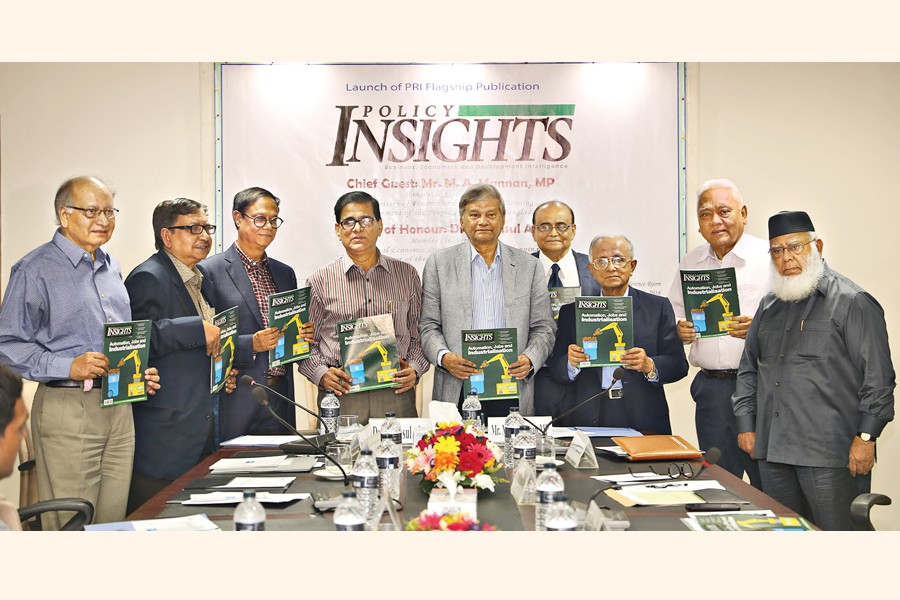Only the strong and well-managed banks should be allowed to receive 50 per cent deposit of the state entities, a leading economist of the country opined on Monday.
"Not all the banks should be allowed to get 50 per cent of the government funds as deposit," Dr. Ahsan H Mansur said in an event, organised by the Policy Research Institute of Bangladesh (PRI) in the capital.
"Rather, there should be some certain criteria or guideline in this regard, so that only the strong and well-managed banks become eligible to have 50 per cent of the government deposit."
His views came while referring to the recent government move, allowing the private commercial banks (PCBs) to get 50 per cent of the government funds instead of the previous 25 per cent.
Pointing to this move, the PRI executive director observed that the government should develop certain 'investment guidelines', so that public money is not handed over to the banks that are not credible enough.
Speaking on the occasion, Dr Mansur also noted that Bangladesh economy is currently at a crossroads due to serious imbalances, both in the money market and in the balance of payments.
"A wide gap is also emerging in credit and deposit growth rates in the banking system, contributing to an acute liquidity crisis in the system."
Mr Mansur also observed that some banks are trying to maximise profit by violating macro-prudential conditions, like ADR, as happened during the fiscal year 2010-11.
"This time, there is no excess liquidity in the money market, rather there is a liquidity crunch in the market," he added.
Speaking on the occasion, PRI chairman Dr. Zaidi Sattar called for increasing the capacity of the Bangladesh Bureau of Statistics (BBS).
"Obviously BBS has capacity limitations, and it is the responsibility of the international organisations, like - World Bank or Asian Development Bank, to provide support in building the capacity of BBS."
"At the same time, a highly-capable national-level statistician with high integrity should ideally head BBS," he opined.
Chairman of Apex Footwear Limited Syed Manzur Elahi, in his speech, called for reducing the interest rates on bank loan to foster necessary private investment in technology upgradation.
"Bangladesh is at a crossroads, and we will need a lot of investments in the coming years to bring state-of-the-art technology in our export-oriented sectors. If we do not have the funds to modernise these, our exports will fall."
He also noted that the cost of doing business in Bangladesh is the highest in South Asia. "Shipping goods to Europe from Mumbai is 40-50 per cent cheaper than it is from Bangladesh," he added.
Editor of The Financial Express A H M Moazzem Hossain, in his speech, observed that the country's leading research organisations, like PRI, can also help build the capacity of BBS.
Noting that many major economies, including China, is imposing higher trade tariff, he said the government should keep this broader focus in mind while formulating its policies.
Speakers at the event also emphasised the growing influence of automation and its potential impact on job creation in the major industrial sectors, like - ready-made garments.
"We need to analyse what challenges we're going to face in the context of growing automation, and we need necessary transformation in line with that," said Dr. Shamsul Alam, Member (Senior Secretary) of General Economics Division (GED), Bangladesh Planning Commission.
"I do not see any reason why bitcoin should be banned," said State Minister for Finance and Planning M A Mannan while referring to the central bank's recent decision to ban transactions through bitcoin and other crypto-currencies in the country.
During the event, Policy Insights, a new PRI publication on business, economics and development insights, was also launched.


